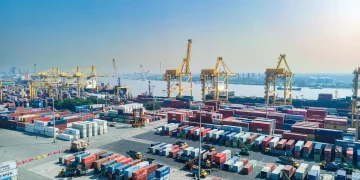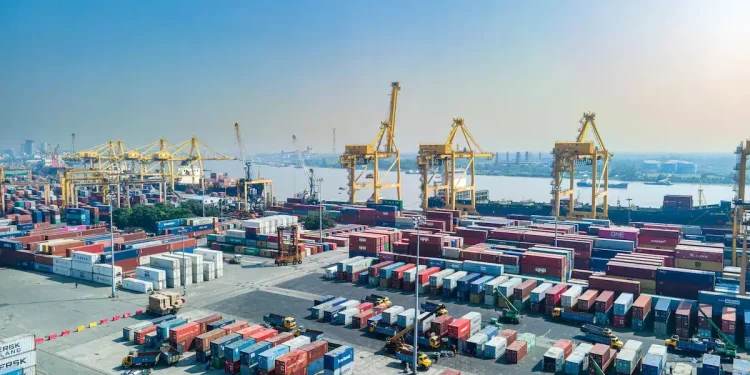By Eva Richardson | April 3, 2025 | The Logistic News
In a decisive step that signals growing concerns over the vulnerability of global shipping corridors, the U.S. Federal Maritime Commission (FMC) has launched a sweeping investigation into seven strategic maritime chokepoints that are central to global trade. The initiative—unprecedented in scope for the agency—aims to determine whether foreign policies or practices are undermining freedom of navigation and placing U.S. commercial shipping at a disadvantage.
Announced on March 14, 2025, this non-adjudicatory investigation covers maritime arteries through which a significant portion of the world’s trade flows: the Panama Canal, Suez Canal, Strait of Gibraltar, English Channel, Singapore Strait, Malacca Strait, and the Northern Sea Passage.
Strategic Corridors Under Threat
These chokepoints represent some of the most geopolitically sensitive and logistically vital areas in international shipping. Any restriction or manipulation of access, pricing, or conditions within them can have outsized consequences on freight costs, supply chain reliability, and global inflation.
The FMC, under 46 U.S.C. 42101(a), has the legal authority to investigate and respond to “unfavorable conditions” created by foreign governments or maritime entities. This includes the power to recommend severe countermeasures—such as restricting port access to vessels flying the flag of countries found to engage in discriminatory or anti-competitive behavior.
A Turning Point for Maritime Oversight
“This is a landmark move,” says James Whelan, a maritime legal analyst at Morgan & Byrne LLP. “The FMC is no longer simply monitoring domestic shipping conditions—it’s asserting influence over international waters where U.S. interests are materially affected.”
Recent disruptions have highlighted the stakes. The 2021 Suez Canal blockage, recurrent delays at the Panama Canal due to climate-induced drought, and mounting tensions in the Arctic’s Northern Sea Route have all underscored the fragility of these maritime lifelines.
According to the FMC, the investigation will explore whether specific practices—such as discriminatory toll setting, excessive waiting times, limited capacity allocation, or politically motivated access restrictions—are creating unfair barriers to U.S. flagged vessels or shippers operating in U.S.-linked trade lanes.
Ramifications for Global Shipping
Should the FMC identify harmful practices, it could lead to diplomatic friction, trade policy realignments, or restrictive port entry measures for foreign shipping firms. This would represent a significant escalation in how trade and navigation disputes are handled—moving beyond the purview of the International Maritime Organization (IMO) and toward direct regulatory responses from national agencies.
“This is not just about logistics. It’s about leverage,” explains Claire Tanaka, Senior Fellow at the Center for Global Maritime Studies. “If a country or transit authority is found to be manipulating chokepoint access to gain economic or strategic advantage, this could have ripple effects across the shipping industry.”
Industry Response and Next Steps
The FMC has invited stakeholder comments from U.S. carriers, logistics providers, freight forwarders, and port authorities. It will use these insights to determine whether any remedies or formal actions are required.
In the meantime, industry players are advised to review transit data, freight patterns, and contractual exposure to the named chokepoints. Those heavily dependent on predictable access through the Suez or Panama Canals, for instance, may need to assess contingency routes or revise long-term pricing assumptions.
A Broader Push for Supply Chain Resilience
This investigation forms part of a larger U.S. agenda to fortify supply chains against geopolitical instability, climate risks, and unilateral regulatory changes abroad. It dovetails with efforts from the White House Supply Chain Resilience Council and new inter-agency frameworks aimed at ensuring critical trade arteries remain open and equitable.
As the global trade ecosystem becomes increasingly entangled with national security and political strategy, moves like this from the FMC could reshape how nations interact over shipping governance.























